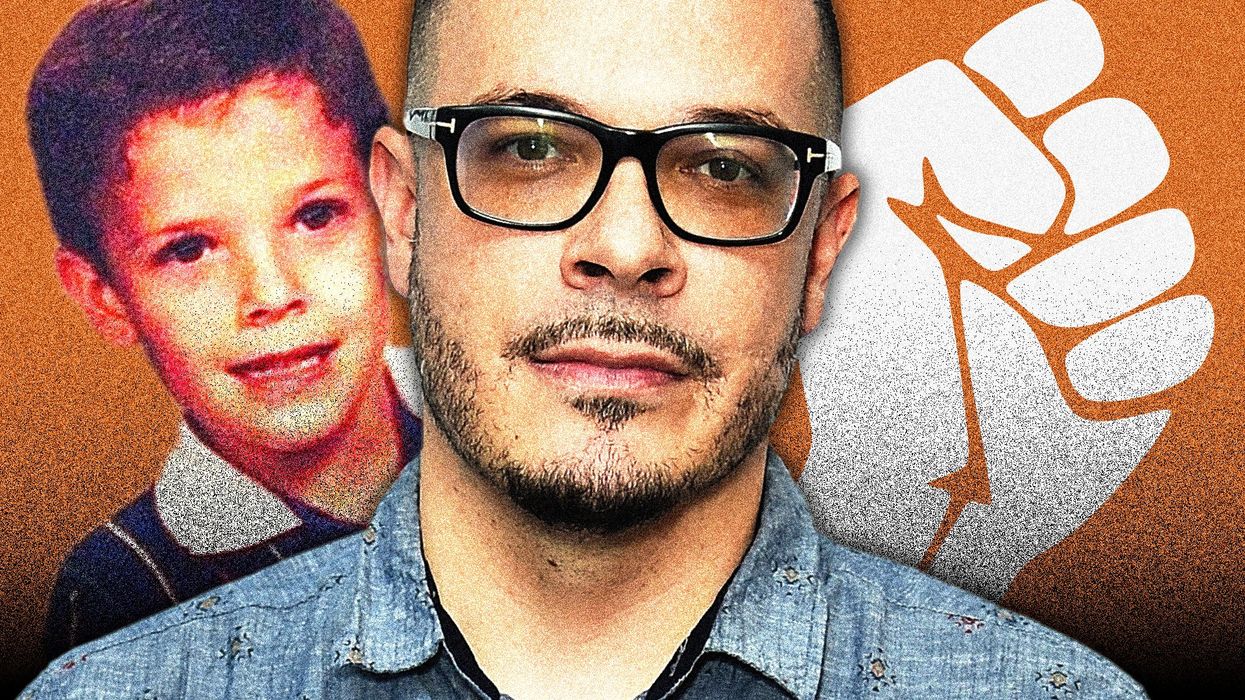
Steven Ferdman / Contributor | Getty Images

Shaun King is a “Narrative Negro.”
He’s not black. Not even close. Check his birth certificate. Check his childhood pictures. As a child, he looked like Opie Taylor. As an adult, he looks like the white man listed on his birth certificate.
But what we’ve learned in the past 20 years is that blackness isn’t a skin color. It’s a narrative. Narrative Negroes are people — regardless of skin color — who devote their lives and public personas to advancing the line that black Americans are perpetual victims of white supremacy.
King, the Black Lives Matter activist, is the Narrative Negro of the past decade. No one has been more committed to the cause of black victimhood than King, the white global-elite asset who rose to national prominence standing on the coffins of Michael Brown and George Floyd.
King’s usefulness to the cause may be coming to an end, however. It appears his puppet masters might be done with him.
Over the weekend, King took credit for playing a role in the release of an American Jewish hostage, 17-year-old Natalie Raanan. Raanan’s family released a statement denying any contact or relationship with King.
“Our family does not and did not have anything to do with him, neither directly nor indirectly. Not to him and not to anything he claims to represent,” they said.
In response, King posted screenshots of direct messages between himself and Natalie Raanan’s brother.
Shaun King is Frankenstein. He’s a Narrative Negro monster who now fashions himself as an international diplomat and activist. His job is to advance the narrative that black Americans are victims, not to involve himself in disputes between Israelis and Arabs. King is done as a social media influencer. For the past 72 hours, he’s been the subject of X and Instagram memes trashing his reputation.
It’s now perfectly acceptable to point out that King’s public persona is fraudulent. This is the inevitable fate of all Narrative Negroes. They’re discarded the moment they’re no longer useful or foolishly deviate from the script they were handed.
The exact same thing happened to Colin Kaepernick last month. A letter he wrote begging the New York Jets for a job magically became public. The letter exposed the fraudulence of Kaepernick’s contention that the NFL is a slave plantation. Seven years after Kaepernick took a knee, black people are now no longer required to pretend the former 49ers quarterback is the second coming of Muhammad Ali.
He’s just another Narrative Negro. No one has ever known who Kaepernick’s father is. He was adopted and raised by a lovely white family. His biological mother was white. Kaepernick’s “blackness” was contingent on his ability to paint black people as victims.
Narrative Negro-ness is the ultimate cosplay for identity-confused mixed-race Americans. It’s lucrative and reputation-enhancing. Bubba Wallace juiced his NASCAR career by advancing the narrative. Nikole Hannah-Jones, aka Homegirl da Clown, won a Pulitzer Prize crafting the narrative with her “1619 Project” at the New York Times. Barack Obama won the White House.
Jussie Smollett is one of the few Halfrican-Americans to bungle being a Narrative Negro. His staged racial assault went too far. It was too far-fetched.
Smollett should have followed the lead of LeBron James.
Yes, LeBron James is also a Narrative Negro. Remember, blackness isn’t a skin color. It’s a narrative. To qualify for authentic or “unapologetic” blackness, you must advance the narrative of perpetual black oppression.
That’s why LeBron claimed unidentified white vandals painted the N-word on the gate of his Brentwood mansion. That’s why Deion Sanders won his first game at Colorado and immediately claimed that his black skin threatened the white college football establishment.
Surviving white oppression is a rite of passage to qualify as black in America. That’s why virtually all black men pretend one of the most defining moments in their lives was some sort of exaggerated negative encounter with a white police officer.
The blackest experience in America is a negative engagement with white people. We cherish, remember, recount, and prioritize those moments above all others. They allow us to advance the narrative that our entire American experience is dependent on the kindness, affirmation, and love of white people.
Narrative blackness is the No. 1 movie playing in America. We’re all actors in the movie. We allow Shaun King to wear blackface because he’s such a talented actor.
We erected statues and memorials to honor actor George Floyd. We pretend that if Floyd had not overdosed on fentanyl, he would be welcomed at our Thanksgiving table next month.
We don’t complain that three black women embezzled millions of dollars during the Black Lives Matter pandemic because it advanced the narrative. We’re good with mush-mouthed lawyer Ben Crump earning millions profiting from the deaths of criminals who resist arrest.
The narrative of black victimization has superseded the story of Jesus Christ, the story of eternal victory through sacrifice. We’d rather be Narrative Negroes than followers of Christ.
The pursuit of “unapologetic blackness” is a mental illness that distorts truth, promotes delusion, and, most embarrassingly, makes the pursuer susceptible to exploitation and emotional manipulation. Worse, it obstructs the pursuit of God and an understanding of His plan.
Jason Whitlock
BlazeTV Host